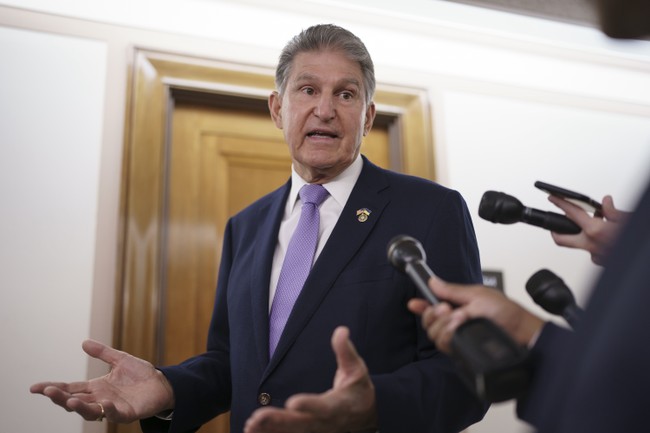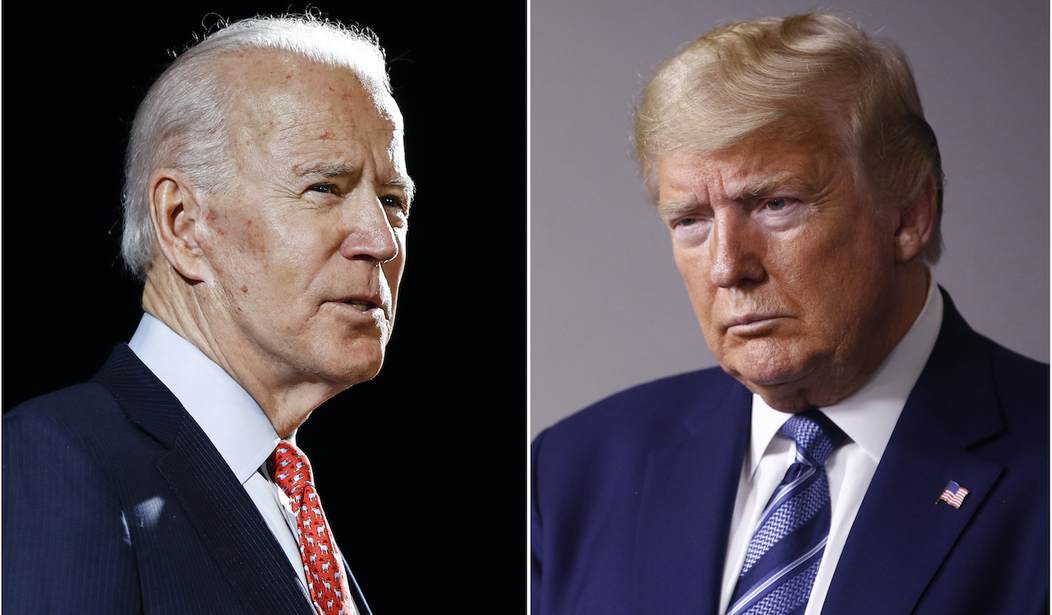Hey, nobody said 2024 was going to be your average, run-of-the-mill presidential election. And now, based on a new poll from Rasmussen Reports, it appears that the upcoming election could potentially be even more interesting than most of us already thought it would be.
As both the Democrat and Republican Parties find themselves in respective predicaments not usually seen by even one party in an election, let alone two — the third-party candidate question continues to be bandied about, and analyzed six ways from Sunday. And as the aforementioned poll found, with valid reason.
The first bottom line: "If the 2024 election proves to be a rematch between President Joe Biden and former President Donald Trump, many voters are open to voting for a third-party challenger."
Somewhat shocking, so would 42 percent of Democrats and 35 percent of Republicans.
While the media, political pundits, and supporters of various candidates are wont to treat poll results as news or authoritative predictions, this is where I like to remind readers that polls are merely snapshots of candidates' support at a particular point in time.
The second bottom line: With the 2024 election more than a year away, and both major parties facing potentially game-changing events, it's unwise to confuse poll results with evidence of a future outcome.
Here's more:
Forty-two percent (42%) of Democrats, 35% of Republicans, and 37% of voters not affiliated with either major party are at least somewhat likely to vote for a third-party candidate if the 2024 presidential election is a Biden-Trump rematch.
In such a rematch, Biden would get 80% of Democrat voters, 15% from Republicans, and 31% of unaffiliated voters. Trump would get 68% of Republican voters, 14% of Democrats, and 47% of unaffiliated voters.
Demographics Matter
While overall dissatisfaction with a Biden-Trump redux is significant, a closer look at the demographics reveals an even more interesting perspective, the poll revealed.
There is a significant “gender gap” in the Biden-Trump rematch preferences, with men favoring Trump by a seven-point margin (48% to 41%) while women voters favor Biden by a nine-point margin, 46% to 39%. Women voters are somewhat more likely to consider voting for a third-party candidate in [a] 2024 Biden-Trump rematch.
Voters 65 and older favor Trump over Biden by a nine-point margin, 50% to 41%, while those under 40 favor Biden over Trump, 44% to 39%. Voters under 40 are significantly more open to voting for a strong third-party candidate if the 2024 election is a Biden-Trump rematch.
Biden is favored by 44% of whites, 49% of black voters, and 36% of other minorities. Trump is supported by 42% of whites, 39% of black voters, and 45% of other minorities. Black voters are most likely to consider voting for a strong third-party candidate in a 2024 Biden-Trump rematch.
With respect to the third paragraph — given the years-long effort of the Democrat Party to paint Trump as racist, not to mention "white supremacist" or "semi-fascist" — who'd a thunk that the former president would be supported by just 10 points fewer black voters and nine points more "other minorities" than Biden?
Joe Biden, the Democrat Party, and "mainstream" media were unavailable for comment.
The third bottom line: While the majority of the respective party faithful, including rank-and-file voters, appear to be holding, a growing percentage of potential voters appear disenchanted with both parties.
So What About a Viable Third-Party Option?
By "viable," I don't mean a possible "spoiler," such as Green Party candidate Cornel West, who could potentially take away enough voters from the Democrat Party — particularly if Biden is their 2024 standard-bearer — to affect the outcome.
What I do mean is whether a strong third-party ticket could actually win the election.
I can't answer that question, although I think it would be highly unlikely if not impossible. West Virginia Democrat Sen. Joe Manchin, who continues to flirt with the idea of leaving the party and becoming an independent, continues to intentionally generate buzz over a possible third-party run.

Additionally, Manchin has reportedly considered both former Utah Republican Utah Gov. Jon Huntsman and retiring Republican Sen. Mitt Romney (Utah) as a potential running mate.
While either option would be anathema to the GOP, it would be equally unacceptable to the Democrat Party — which is exactly why a 2024 third-party option continues to generate interest.
The Final Bottom Line
I've never been about making presidential election predictions with more than a year to go, but I'll make a safe exception: There's no way in hell a third-party ticket will win in 2024.
Despite the uncertainty that exists in both major parties, at the proverbial end of the day, either a Democrat or a Republican will emerge as the winner. Battered, bloodied, and bruised, perhaps, but yeah.














Join the conversation as a VIP Member